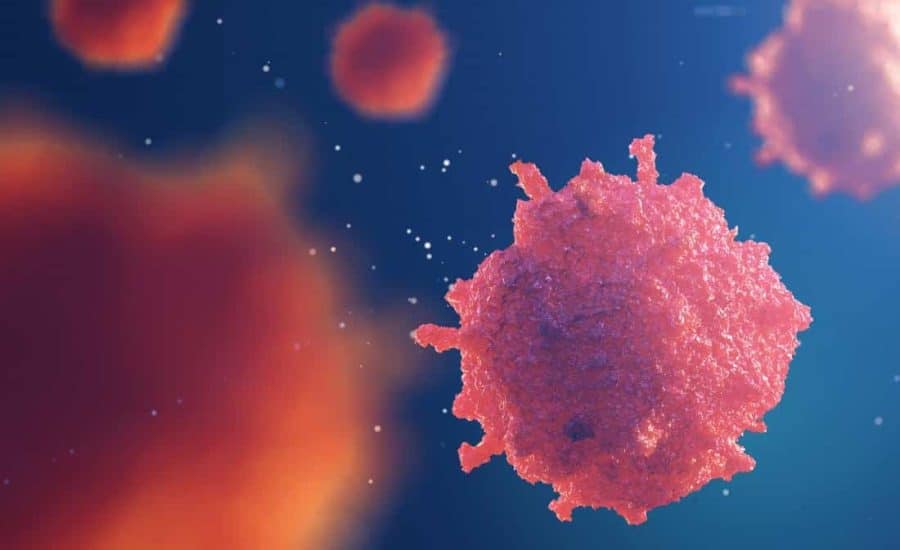The mass growth of abnormal cells in the brain is called a brain tumor. In other words, a brain tumor is a collection of abnormal cells inside of the skull, which causes life-threatening damage to the brain.
There are different types, some of which are cancerous or malignant while some are uncancerous (benign). How a brain tumor starts can be pointed into two different forms which may be from the brain to other body parts, or it could begin as cancer and spread to the brain. Metastatic or secondary brain tumors are the ones that start in other parts of the body before spreading to the brain while the tumor that starts in the brain is called a primary brain tumor.
The speed at which the tumor grows depends on some factors and how it will affect the nervous system also varies.
Types of Brain Tumors
These are some of the brain tumors known to be in existence;
- Glioma
- Medulloblastoma
- Acoustic neuroma
- Oligodendroglioma
- Pediatric brain tumors
- Embryonal tumors
- Glioblastoma
- Pineoblastoma
- Pituitary tumors
- Meningioma
- Astrocytoma
- Brain metastases
- Choroid plexus carcinoma
- Craniopharyngioma
- Ependymoma
Symptoms of Brain Tumor
When an individual observes any of the following signs, it is important to schedule a meeting with a specialist. These signs are dependent on factors like brain tumor's size, growth rate, and location. But these general signs is for anyone to take note of.
- Unexplainable vomiting or nausea
- Behavioural or personality changes
- Sudden cases of seizures especially with someone has no precedent history of seizure
- frequent headaches
- repeated headaches with different patterns
- memory loss
- Blurred or double vision
Brain Tumor Diagnosis
The diagnosis has two major approaches, which are; physical examinations and medical history.
Physical examination: This can include detailed neurological diagnosis where the doctor will test the patient's cranial nerves to see if they are in good condition. Cranial nerves are the nerves that originate from the brain. Other things the doctors may observe are; Muscle strength, memory capacity, mathematical calculations, and other physical observations as the doctors may deem fit. Some other tests may include several scans from CT scan. MRI scan, Skull X-Rays, Biopsy, Angiography.
Brain Tumor treatment
The treatment of a brain tumor can depend on some factors like;
- Patient's health status
- Size of tumor
- Location of tumor
- type of tumor
Surgery: This is the most common treatment for a brain tumor. This is applied to remove the cancerous tissues causing damage to other healthy cells in the brain. It can even get to a point where a part of the brain might be removed, and this has been recorded to have positive effects on the health of the patient.
Radiosurgery: This is applied through delivering gamma rays into the head. Radiosurgery is very effective and fast.
Stereotactic Radiosurgery: This is another form of treatment where multiple beams of radiation meet on the cancerous tissues and kill them.
There are some risks attached to brain tumor treatment, which includes bleeding and infection. Chemotherapy and radiation therapy are also methods of cancer treatment in India.
It is very essential for anyone to have in-depth knowledge about causes, symptoms, and treatments of these conditions as this will not only help friends and relatives, but it will avoid unnecessary and avoidable emergencies.
To know more about brain tumor treatment alternatives and also for getting cancer treatment in delhi, from experts doctors across the world, visit delhi cancer institute.
Related reading
- Mesothelioma: Causes, Diagnosis, Symptoms, Risk, Prevention and Treatments
- 5 Proven Household Cancer Causing Products

Isreal olabanji a dental assistant and public health professionals and has years of experience in assisting the dentist with all sorts of dental issues.
We regularly post timely and trustworthy medical information and news on Fitness, Dental care, Recipes, Child health, obstetrics, and more.
The content is intended to augment, not replace, information provided by your clinician. It is not intended nor implied to be a substitute for professional medical advice. Reading this information does not create or replace a doctor-patient relationship or consultation. If required, please contact your doctor or other health care provider to assist you to interpret any of this information, or in applying the information to your individual needs.


